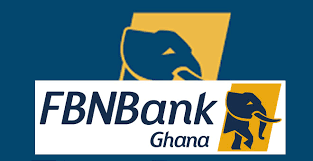It was not yet clear if Ghana is drawing inspirations from the success rate so far achieved by the Nigeria’s Ministry of Finance via the current tax amnesty scheme that will expire March next year as the Government of Ghana is to grant a tax amnesty for a period of eight months, beginning January 31, 2018 to August 31, 2018.
It would be recalled that the Ministry in Nigeria opened a window for Nigerians and corporate citizens to regularize their tax status by approaching any tax office to voluntarily declare their tax defaults and make corresponding restitution since this year till March next year when tax evasion will become serious economic crime.
The government also introduced VAIDS structured to serve as an education and awareness institution to drive the amnesty regime.
In Ghana, a statement issued by the Ghana Revenue Authority (GRA) showed that it would be embarking on a vigorous campaign to ensure compliance, including court actions.
The Ghanaian agency made it clear that the Finance Committee of Parliament on the Tax Amnesty Bill 2017, had adopted the policy as introduced by Government exempt taxpayers, who register and file returns within the targeted period from paying penalties and interests for late submission or non-submission of returns as well as non-payment of taxes.
 Dr Mark Assibey-Yeboah, Chairman of the Finance Committee of Parliament, presenting the report recalled that, as per the Budget Statement, Government’s policy is to reduce taxes on the ordinary Ghanaian
Dr Mark Assibey-Yeboah, Chairman of the Finance Committee of Parliament, presenting the report recalled that, as per the Budget Statement, Government’s policy is to reduce taxes on the ordinary Ghanaian
“The reduction can be achieved if the tax base is broadened.
“The measure therefore is to help broaden the tax base and improve compliance. This would help accelerate growth of the Private Sector and generate jobs,” he said.
Deputy Minister of Finance Kwaku Kwarteng at the Finance Committee sitting observed that a significant number of taxpayers fail to file returns with average filing rates below 50 per cent. Further, the sanctions and penalties are quite stringent and that deter taxpayers from coming forward voluntarily to file returns and make outstanding payments.
The GRA, according to the report has done a lot of work to update its database on taxpayers, and the Authority now has information on teachers, lawyers, members of all professional bodies and doctors among others.
However, in Nigeria, the Federal Inland Revenue Service (FIRS) is yet to build up such data base and the Finance Minister, Mrs. Kemi Adeosun had been decrying the situation, saying it does not mean well for the nation’s tax system as government loses fortunes.









